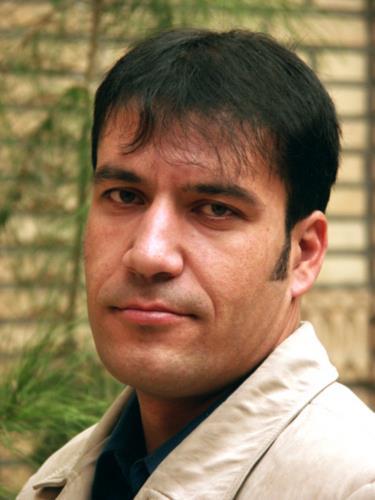POLITICALLY MOTIVATED CHARGES FOR CORRUPTION REPORT:
Tajik authorities detained a well-known independent journalist and head of a local comedy troupe on December 5, 2017, in Tajikistan’s northern Sughd region, Human Rights Watch and the Norwegian Helsinki Committee said today.
 The regional Prosecutor General’s office arrested Khayrullo Mirsaidov, 39, in Khujand, on charges of embezzlement; incitement of interethnic, national, or religious hatred; forgery; and providing false testimony after he voluntarily appeared at the Prosecutor General’s office for questioning. The charges were brought after Mirsaidov appealed to Tajikistan’s president to crack down on corruption by local authorities.
The regional Prosecutor General’s office arrested Khayrullo Mirsaidov, 39, in Khujand, on charges of embezzlement; incitement of interethnic, national, or religious hatred; forgery; and providing false testimony after he voluntarily appeared at the Prosecutor General’s office for questioning. The charges were brought after Mirsaidov appealed to Tajikistan’s president to crack down on corruption by local authorities.
– No credible evidence
– Authorities have presented no credible evidence supporting Mirsaidov’s arrest on what appear to be politically motivated charges, said Marius Fossum, Norwegian Helsinki Committee regional representative in Central Asia.
– Independent journalists like Mirsaidov should be recognized for their important work, not locked away and silenced for daring to discuss corruption, he continues.
Habibullo Mirsaidov, the journalist’s father, told Radio Ozodi, the Tajik service of Radio Free Europe, that the Sughd region Prosecutor General’s office summoned Mirsaidov for an interrogation on December 5 and arrested him on the spot. Mirsaidov is being held in pretrial detention facility No. 1 in the city of Khujand. A local court approved the prosecutor’s request to detain him for two months.
– Khayrullo Mirsaidov, who is well-known and respected for his independent journalism, appears to be the latest victim of the Tajik government’s crackdown on critical voices, said Steve Swerdlow, Central Asia researcher at Human Rights Watch.
– The Tajik government should ensure Mirsaidov’s rights in detention, including to be free from ill treatment and have access to a lawyer, and should move promptly to secure his release.
Investigated corruption
In November, Mirsaidov wrote an open letter to President Emomali Rahmon, Prosecutor General Yusuf Rahmon, and the head of the Sughd region, Abdurakhmon Kodiri, asking them to investigate a corruption episode. His letter detailed alleged attempts by Olim Zohidzoda, head of the Sughd Department of Youth and Sport, to solicit a US$1,000 bribe from the funds Sughd authorities allocated to the local youth satirical comedy troupe – known commonly by its Russian acronym KVN – that Mirsaidov manages. The funds were intended to pay for microphones and other equipment for the team.
“I complained about these actions to the local government of the Sughd region and left for Moscow with the team,” Mirsaidov wrote. “However, as soon as I had returned home, tax authorities and the Prosecutor General’s office simultaneously began investigating our team.” In response, Zohidzoda accused Mirsaidov of embezzling the funds.
The charges against Mirsaidov carry up to a total of 21 years in prison under Tajikistan’s Criminal Code. The incitement charges are allegedly linked to satirical comedy skits by the KVN troupe.
Worsening Human Rights records
Over the past 17 years, Mirsaidov has earned a reputation for fearless, independent journalism and solid political analysis. He has reported for Deutsche Welle, Asia-Plus, and the Fergana media outlets, among others. Mirsaidov has often written about human rights issues, ecological problems, and respect for ethnic minorities. He also worked as a media development trainer on projects sponsored by the Organization for Security and Co-operation in Europe (OSCE), the United Nations Development Programme (UNDP), the Department for International Development (DFID), and the Index on Censorship.
Since 2014, Mirsaidov has managed the Sughd region’s competitive KVN team, leading them to become finalists and win championships in Bishkek, Sochi, and Moscow among hundreds of competing teams. KVN comedy competitions have a long and popular tradition across the former Soviet space and are known for including political satire.
Tajikistan’s atrocious human rights record worsened further in 2017, as authorities deepened a severe, widespread crackdown on free expression and association, peaceful political opposition activity, the independent legal profession, and the independent exercise of religious faith. Well over 150 political activists, including a number of lawyers, remain unjustly jailed, and relatives of dissidents who peacefully criticize the government from outside the country have been subject to violent retaliation orchestrated by authorities, including arbitrary detention, threats of rape, confiscation of passports and property, and vigilante justice at the hands of sometimes violent mobs.
Over the past year, at least 20 journalists have fled the country, fearing prosecution for their professional activities. Journalists perceived to be critical of the government risk harassment and intimidation. As a cult of personality around Rahmon has risen, journalists are subjected to ever stricter legal rules on how they refer to him and his family. As of April, a new law mandates that all media must refer to Rahmon as “The Founder of Peace and National Unity, Leader of the Nation, President of the Republic of Tajikistan, His Excellency Emomali Rahmon.”
Picture © Radio Ozodi/ Tajik Service of Radio Free Europe/Radio Liberty